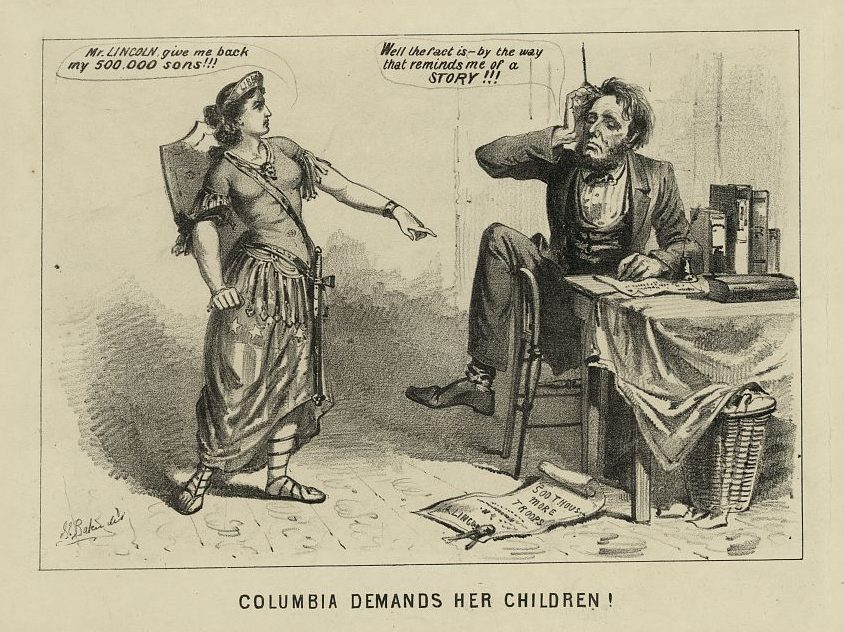Using the Language of “Sacrifice” Can’t Hide the Rotten Smell of “Unnecessary”
Regular readers of this blog know I believe it is imperative for religious people to develop their capacities to relate politics and religion. Politics and religion share the cultural spaces and work of offering founding stories, defining belonging, setting moral order, and imagining what it would take to be a fully-empowered people.
But politicians dealing with death show a limitation of politics to address a fundamentally religious topic. Politics has few ways of giving meaning to death, and politicians should pay close attention to their deeds and words.
Two political ways of dealing with death are to create monuments/memorials and to employ the religious rhetoric of sacrifice.
Politicians create monuments for dead public figures they want to keep alive in public and memorials to events the people “should never forget.” For monuments, think Mount Rushmore, the temples of Jefferson and Lincoln, and the Washington obelisk.
Memorials. There are so many memorials—from the cemeteries at Gettysburg and Arlington to markers for 9/11, the silent seats in Oklahoma City, and the National Memorial for Peace and Justice (dedicated to the victims of white supremacy) in Montgomery.
The religious language of sacrifice, as used in political rhetoric, is most often applied to the people who died in war. The most well-known such speech in American history is Lincoln’s Gettysburg address, given at the dedication of the cemetery. Lincoln told his hearers that the blood of the fallen had consecrated that place and hoped that their sacrifice would lead to a new birth of freedom. It is good to recall that even Lincoln—maybe especially Lincoln—was the target of disdain for all the “sacrifices” that those who lost loved ones did not accept as sacrifices.

Published in 1864. Artist: Baker, Joseph E., approximately 1837-1914. From the Library of Congress Prints and Photographs Division.
I wonder. Years from now, in whatever “after the pandemic” means, will politicians build monuments and memorials to front-line medical workers who died providing care for the ill, often due to inadequate protections? How about for delivery drivers and grocery clerks who worked in unsafe conditions, for they too lacked gloves/masks/sanitizer, and while working for less money than any adult (or “essential employee”) in the U.S. should make? How about for the elderly who were asked by a particularly insensitive politician or two to sacrifice themselves for the sake of the economy we should leave to our children and grandchildren?
Maybe such categories of persons will be honored under the “never forget” banner. But if “return to normal” means “return to the inequalities of the before times” then maybe not. The persons who gave of themselves may be thanked for their “sacrifice”—and then we move on. And, if return to normal means the continued reign of “negative freedom”—freedom from, “it’s a free country!” type of freedom—then there will not be the will to do anything but keep our unsustainably thin social covenant and move along.
Sacrificed for the economy. Sacrificed for a politician’s re-election chances. Sacrificed because some anti-social hyper-individualist decides he has the right to go anywhere he wants, without a mask (thus risking the lives of others), and threaten with words, spit, and weapons anyone who hinders him.
What an abominably profane and disgusting misuse of sacrifice, to demand or accept the “ultimate sacrifice” of people on the altar of the economy or power. The image that comes to my mind is the biblical Abraham as a politician, with a bound restaurant worker or elderly person lying on a stone altar. In Abraham’s hand is a knife, and a voice from the sky egging him on. “If you want to retain power, strike!” And the deed is done.
Give your life for the sake of the economy and for the retention of those in power. What kind of moral claim is that? A really bad one. But I suspect that politicians who are pushing for such “sacrifices” can’t find another language that gives them moral cover for deaths that are, in fact, unnecessary.


Leave a Reply